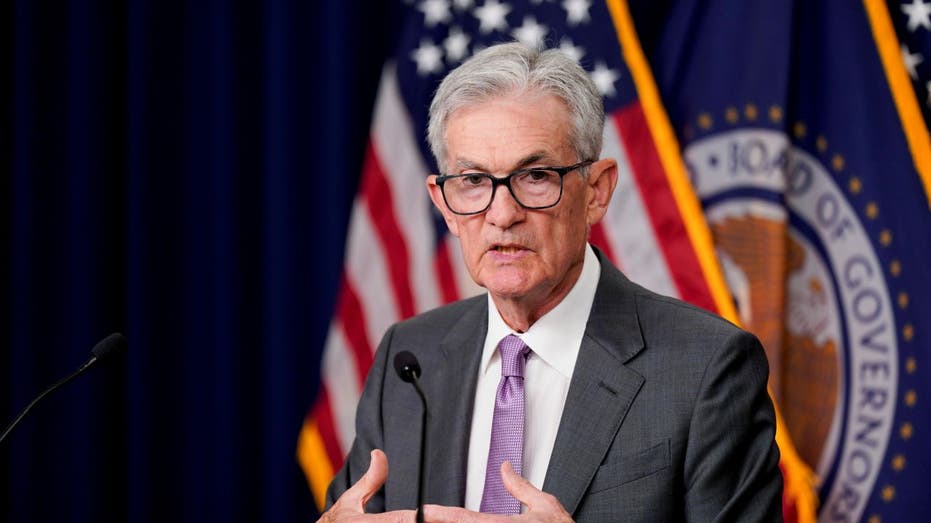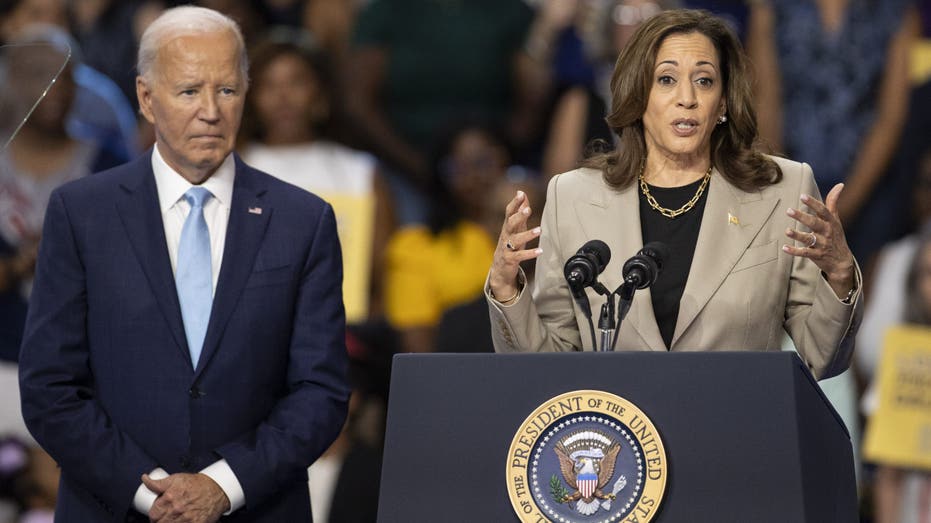Money Map Press chief investment strategist Shah Gilani discusses whether markets will sell off if the Fed rate cut does not meet expectations on ‘Varney & Co.’
Ahead of the Federal Reserve announcing a cut to interest rates on Wednesday, some economists say the key driver to the high price of goods and costly living remains unchecked.
While a rate cut will likely boost the stock market and ease some pressure on the housing market, other costs that are strapping many Americans, like interest rates on record-high credit card debt, will be untouched, some economists say.
“It’s too close to the election to have much of an impact on a lot of consumer interest rates,” EJ Antoni, a research fellow at the Heritage Foundation, told Fox News Digital in an interview.
But the timing of the cut less than 50 days out from the November elections has raised alarm bells with at least one economist.
Will Hild, executive director of Consumers’ Research, told Fox News Digital of the forthcoming decision, “I do think it’s suspicious, given the timing and the lead up to the election.”
HARRIS’ PUSH FOR ELECTRIC VEHICLES SUFFERS ANOTHER BLOW AFTER AUTOMAKER BACKTRACKS: ‘UNWANTED AND UNWORKABLE’

Federal Reserve Chair Jerome Powell. (Al Drago/Bloomberg via Getty Images / Getty Images)
“The Fed is supposed to be politically independent,” he continued. “We’re set up to be politically independent for that reason, and so part of their task is to not look like they are simply weighing in on one side politically or the other. And I think they’ve certainly failed in that duty this election, because regardless of what their true motivations may or may not be, it certainly looks very suspicious.”
Regardless of the timing, Antoni said the impact on the election will likely be minimal.
“So credit cards are not going to come down appreciably from where they are right now, which is near record highs,” he said. “So the fact that consumers, American families, are currently paying about $300 billion annually in interest on credit cards right now, it’s unlikely that that’s really going to have any kind of meaningful change by the time we get to the election.”
Antoni said that the immediate impact of a federal rate drop will be in asset prices. “So you will see a rally in equities. In other words, you’re going to see the stock market head north because of this,” he said.
However, he explained the “breakneck pace” of government spending is ultimately the culprit keeping living costs high.
“It’s going to make it cheaper for people to borrow, it’s going to make it cheaper for people to invest. And all of those things sound great. We want a deep, liquid capital market,” Antoni said.
“We want a low cost of borrowing so that we get more investment and more economic growth. The problem is, this is all happening with the backdrop of runaway government deficit spending, in other words, a breakneck pace of borrowing by the Treasury.”
Antoni noted that a Treasury report last week revealed that, for the first time ever, the U.S. accrued a trillion dollars in interest on the debt for the fiscal year.
CEO OF JPMORGAN WARNS US OF ECONOMIC FATE WORSE THAN RECESSION: ‘THE WORST OUTCOME’

Wall Street traders are gearing up for this week’s Federal Reserve decision on interest rate cuts. (Yuki Iwamura/Bloomberg via Getty Images / Getty Images)
Hild added that depending on what the final cuts look like, it could risk spiking inflation rates again, which still hovers around 3% — higher than the 2% target.
“I think there’s some danger here that, with inflation not entirely back to the pre-rise levels, that if [Federal Reserve Chair Jerome Powell] cuts too early, we could see that start to tick up. We haven’t really licked inflation back to the 2.0 target the Fed has historically held to. Yet they are, it seems to be, opening up monetary policy. I think that does run a risk that inflation will continue at a historically high run rate.”
Hild added that one positive outcome of the rate cut could be in the housing market. When the interest rates were raised four years ago, the interest on mortgage rates were raised, which kept many homeowners who might have wished to sell their home but remained stationary to keep a lower interest rate. That, in turn, dried up inventory, which in turn drove up the price of homes.
If mortgage rates come down following a cut in federal interest rates, Hild said that could “ease pressure” on the housing economy.
US IS SHIFTING FROM ‘DEGREE-CENTRIC ECONOMY TO A SKILL-CENTRIC ECONOMY,’ EXPERTS SAY
“The Fed is in a tight spot,” Alfredo Ortiz, CEO of the Job Creators Network, told Fox News Digital.
“If they go 50 basis points, that’s probably the most they can do without spooking the markets. If they go 75 basis points, it’s probably going to spook the markets. But you also run the risk, if you’re the Fed, that inflation might rear its ugly head again,” he said.
“I think you would be a little bit breaking with the tradition if a Federal Reserve does cut rates, especially for an election, especially if they go as far as, let’s say I’m hearing 50 points,” he said.
He added that a major factor in the high prices remains the stifling of American energy production.

President Biden and Vice President Kamala Harris attend an event in Prince George’s County in Maryland on Aug. 15. (Mostafa Bassim/Anadolu via Getty Images / Getty Images)
“The Fed raised the interest rates to try to slow down an economy that was completely overheated from reckless government spending and the attack on domestic energy production,” Ortiz said.
Among other things, the Biden-Harris administration stopped the Keystone XL pipeline, put a moratorium on new leases on federal lands for oil and gas drilling, and imposed various EV mandates.
“It really sent a kind of a ripple effect for the entire industry that basically said to investors, don’t invest in [the fossil fuel] industry,” Ortiz says. “It really destabilized the industry both domestically and globally.”
GET FOX BUSINESS ON THE GO BY CLICKING HERE
“Whether it’s through oil or electricity or gas, all that flows through our economy to almost every single thing that we do. And when that input goes up across every single aspect of your life, that’s where you start getting that inflation increase,” he said.
“I like calling Biden and Harris arsonist firefighters. They’re trying to get credit for putting out a fire that they created,” he said.
The Federal Reserve meets Wednesday afternoon to announce its sixth interest rate decision, which is expected to be a reduction in borrowing costs by 25 to 50 basis points.
